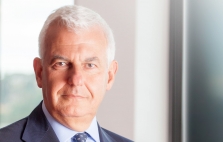Sense of Purpose


Editorial

From time to time concepts that, at first sight, seem quite old fashioned suddenly get a new lease of life. For example, open innovation has been around for decades, but it’s come to the fore again in recent years in the context of converging industries, start-up collaborations and the rise of the innovation ecosystem. Similarly, the idea of a “sense of purpose” has been around since the birth of industry: the first entrepreneurs of the late 19th and early 20th centuries, such as Henry Ford and John Cadbury, were both driven by a clear sense of purpose based around manufacturing products which would benefit society as well as create business value. A sense of purpose is much more fundamental than a mission, and therefore potentially more enduring, inspiring and powerful. In today’s business world, in which companies can no longer be defined only in terms of their often rapidly changing products and services, a clear and inspiring sense of purpose has once again become essential. This is our theme for the first Prism edition of 2019.
In our lead article we look at how having a clear a sense of purpose can help solve one of the biggest challenges for large, decentralized organizations – enabling innovation agility and dynamism across a large R&D network with a complex and diverse technology portfolio. Based on a recent case example, we illustrate how to go about this difficult process.
Digital transformation is rarely off the agenda, and in our second article we explore the challenges companies face and how to overcome them. One of the keys is to have a clear idea of how far to go – the “digital equilibrium” – and ensure a solid foundation to build on, focusing on people, not just technology.
In our other articles we focus on specific topics relating to how to deliver growth, profitability and value in today’s rapidly changing business environment. Cyber-threats are becoming ever more critical, and traditional approaches often fail to protect businesses. We examine a new, unified approach that brings together technology and risk management processes. A clear sense of purpose is also critical for today’s oil companies, which face a volatile socio-political environment, a future of finite resources, and an obligation to address important environmental concerns. We take a look at what the oil company of the future may look like. And in our last article, we demystify the much-hyped world of robotics: how does the market work, and which segments are likely to be successful?
Finally, we are delighted to bring you an exclusive interview with Alessandro Profumo, the CEO of Leonardo, a major player in the aerospace, defense and security systems markets. Mr. Profumo explains how his focus on innovation, combined with his One Company vision, is future-proofing the business across the world.
As always, we hope you enjoy the insight from our experts at Arthur D. Little, and we wish you every success in fulfilling your “raison d’etre”!

Rick Eagar
Chief Editor, Prism
Arthur D.Little
DATE


Editorial
From time to time concepts that, at first sight, seem quite old fashioned suddenly get a new lease of life. For example, open innovation has been around for decades, but it’s come to the fore again in recent years in the context of converging industries, start-up collaborations and the rise of the innovation ecosystem. Similarly, the idea of a “sense of purpose” has been around since the birth of industry: the first entrepreneurs of the late 19th and early 20th centuries, such as Henry Ford and John Cadbury, were both driven by a clear sense of purpose based around manufacturing products which would benefit society as well as create business value. A sense of purpose is much more fundamental than a mission, and therefore potentially more enduring, inspiring and powerful. In today’s business world, in which companies can no longer be defined only in terms of their often rapidly changing products and services, a clear and inspiring sense of purpose has once again become essential. This is our theme for the first Prism edition of 2019.
In our lead article we look at how having a clear a sense of purpose can help solve one of the biggest challenges for large, decentralized organizations – enabling innovation agility and dynamism across a large R&D network with a complex and diverse technology portfolio. Based on a recent case example, we illustrate how to go about this difficult process.
Digital transformation is rarely off the agenda, and in our second article we explore the challenges companies face and how to overcome them. One of the keys is to have a clear idea of how far to go – the “digital equilibrium” – and ensure a solid foundation to build on, focusing on people, not just technology.
In our other articles we focus on specific topics relating to how to deliver growth, profitability and value in today’s rapidly changing business environment. Cyber-threats are becoming ever more critical, and traditional approaches often fail to protect businesses. We examine a new, unified approach that brings together technology and risk management processes. A clear sense of purpose is also critical for today’s oil companies, which face a volatile socio-political environment, a future of finite resources, and an obligation to address important environmental concerns. We take a look at what the oil company of the future may look like. And in our last article, we demystify the much-hyped world of robotics: how does the market work, and which segments are likely to be successful?
Finally, we are delighted to bring you an exclusive interview with Alessandro Profumo, the CEO of Leonardo, a major player in the aerospace, defense and security systems markets. Mr. Profumo explains how his focus on innovation, combined with his One Company vision, is future-proofing the business across the world.
As always, we hope you enjoy the insight from our experts at Arthur D. Little, and we wish you every success in fulfilling your “raison d’etre”!

Rick Eagar
Chief Editor, Prism
Arthur D.Little
TABLE OF CONTENTS

Innovation purpose
Innovation is central to success for businesses today, yet many large, asset-heavy companies with decentralized business units struggle to combine R&D agility with common, clearly communicable corporate strategies. This article, based on experience at a large global energy company, explains how a purpose-driven approach to R&D can deliver innovation agility across the organization.

Implementing a digital shift
Today, every company wants and needs to become digital. However, what this actually entails will be different depending on the industry, size of the company, and competitive environment. Businesses essentially need to find the right degree of digitalization – their digital “equilibrium”. By exploring some of the key problems traditional businesses face on their digital journeys, and how to overcome them, this article outlines how every business can realize the digital shift and create equilibrium.

Cyber-threat: Is your business prepared for an attack?
Despite the emphasis on and investment in cyber-security, traditional approaches, which tend to focus on either technology or risk, are failing to protect businesses and their customers. This article explains the benefits of adopting a new, unified approach that brings together technology and risk management processes. It enables organizations to better protect themselves against cyber-threats, thus safeguarding their businesses, data and revenues.

Shaping the oil company of the future
After over a century of growth, demand for oil is likely to peak and begin to decline by around 2035. This will lead to radical transformation of the industry, convergence, new entrants and new business strategies. What will this future ecosystem will look like? Will existing players be able to survive and even benefit from these new challenges? We explore what the successful oil company of the future will look like. Introduction

Demystifying robotics: A drone’s eye view
Robotics is transforming businesses in multiple industries across the globe. Already a $100 billion market, it is growing rapidly thanks to improvements and declining costs in sensors and AI software. However, the robotics sector is not well understood by executives or investors. This article provides a primer to explain market dynamics and the key considerations businesses need to focus on if they are to successfully embrace the opportunities it offers.

Interview: Using innovation to create sustainable growth
An interview with Alessandro Profumo, CEO, Leonardo S.p.A.(formerly Finmeccanica Group S.p.A.) Francesco Marsella, Giancarlo Agresti, Andrea Visentin Alessandro Profumo is the chief executive officer of Leonardo S.p.A., a role he has held since May 16, 2017. He has also been the honorary chairman of AIAD (the Italian Industries Federation for Aerospace, Defense and Security) since July 2017 and chairman of the Fondazione Ricerca & Imprenditorialità since February 2018.



